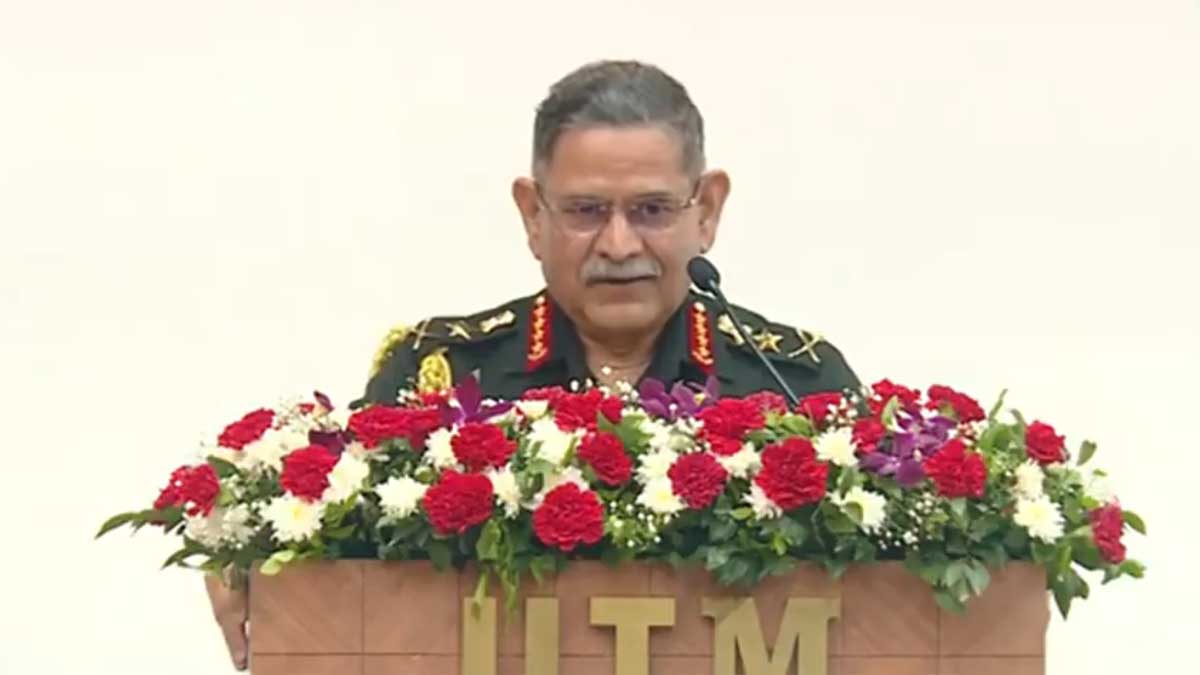Operation Sindoor: Army chief details how India made ‘grey zone chess moves’ against Pakistan

Chief of Army Staff General Upendra Dwivedi said the government had given a “free hand” to the armed forces to give a befitting response to the terrorist attack in Pahalagam on April 22.
He was addressing a gathering after inaugurating ‘Agnishodh’ – the Indian Army Research Cell at IIT Madras.
“On April 23, the next day itself, we all sat down. This was the first time that RM (Defence Minister Rajnath Singh) said, ‘Enough is enough’. All three chiefs were very clear that something had to be done,” General Dwivedi said.
He said the clarity in the political leadership’s direction had boosted the morale of the forces and helped the army commanders-in-chief to be on the ground and act according to their wisdom.
India launched ‘Operation Sindoor’ on May 7, carrying out airstrikes on nine terrorist hubs in Pakistan and Pakistan-occupied Kashmir, killing over a hundred terrorists and inflicting heavy damage to the terror infrastructure.
Giving a detailed account of the military confrontation between India and Pakistan following Operation Sindoor, General Dwivedi said it was like making chess moves.
"In Operation Sindoor, we played chess. We did not know what the enemy's next move was going to be, and what we were going to do. This is called the grey zone,” he said, adding that what they were doing was just short of a conventional operation.
“We were making the chess moves, and he (the enemy) was also making the chess moves. Somewhere we were giving them the checkmate and somewhere we were going in for the kill at the risk of losing our own, but that's what life is all about,” he said.
General Dwivedi also mocked Pakistan’s claims of victory in the conflict, and noted how narrative management is playing a key role in war.
“If you ask a Pakistani whether you lost or won, he'd say, ‘My chief has become a field marshal. We must have won only, that's why he's become a field marshal',” said the Army chief.
The Army chief’s remarks came hours after Air Chief Marshal Amar Preet Singh revealed that the IAF shot down five Pakistani fighter jets and a large aircraft during Operation Sindoor, in the largest-ever recorded surface-to-air kill by India.
This was the first official comment on the damage caused to Pakistan during the Indian strikes over three months ago.
"We have at least five fighters confirmed killed and one large aircraft, which could be either an aircraft or an AWC, which was taken at a distance of about 300 kilometres. This is the largest ever recorded surface-to-air kill that we can talk about," Singh said, while delivering the 16th Air Chief Marshal L M Katre Memorial Lecture in Bengaluru on Saturday.
Defence